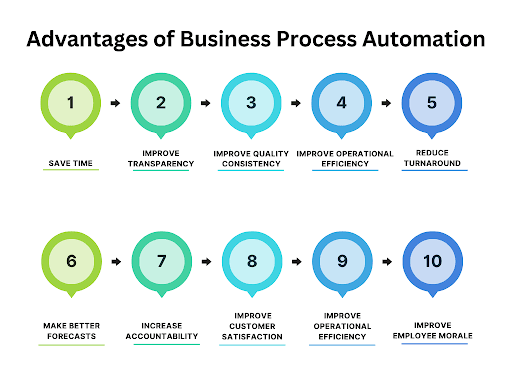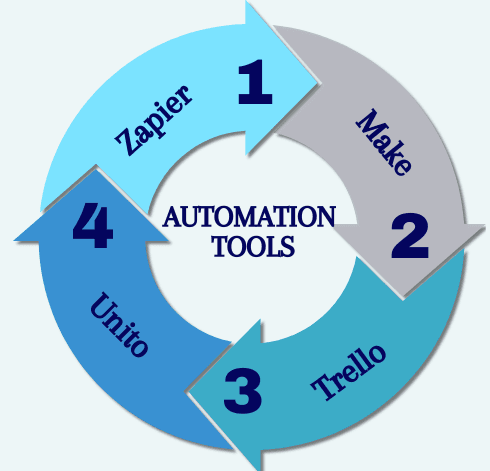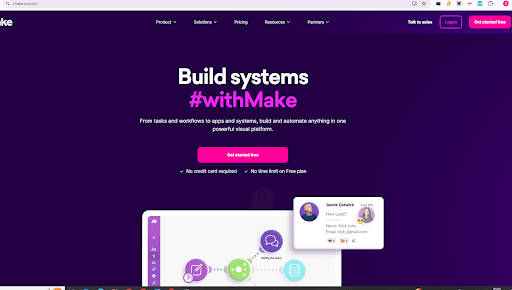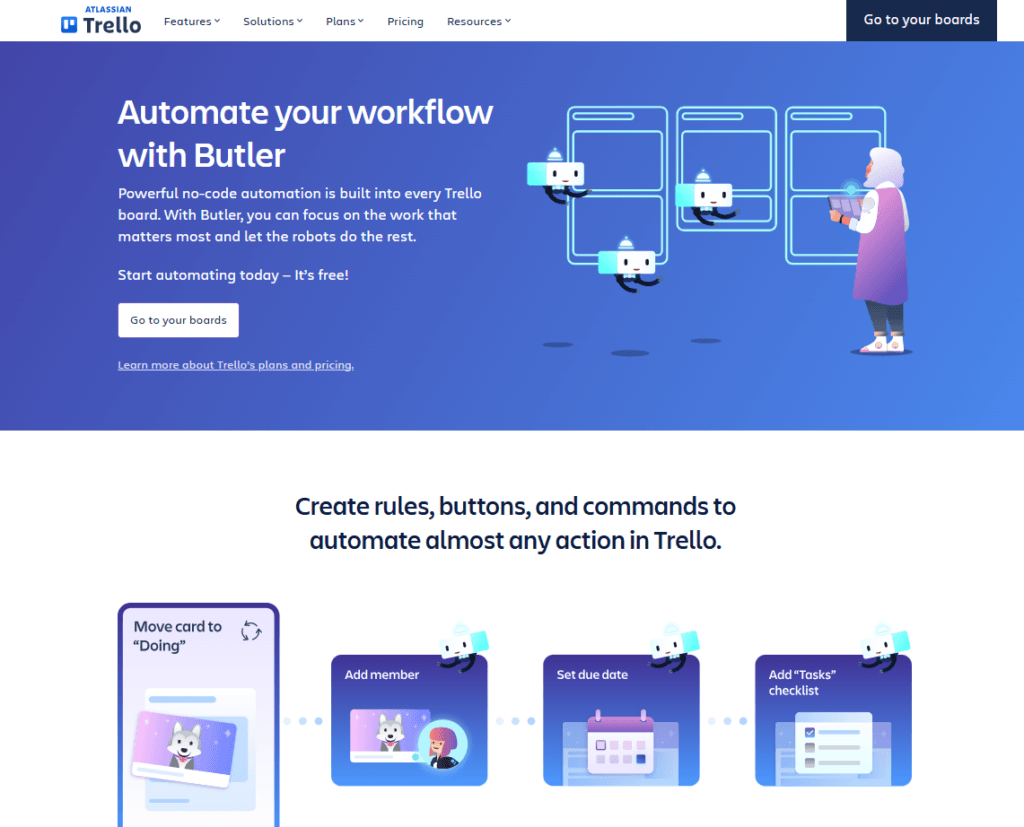Business process automation is quickly becoming essential for gaining a competitive edge. Advances in technology and cloud computing have shifted the focus from just improving business processes (re-engineering) to fully automating them. The goal now is to enhance efficiency through automation rather than just redesigning processes. But why is this so important? Here’s a look at the top 10 benefits of business process automation.
In a time when time is money, businesses are always seeking methods to streamline their operations. Through business process automation (BPA), companies can enhance overall productivity, reduce costs, and simplify processes. By automating repetitive tasks, businesses can unlock numerous benefits that boost customer satisfaction and efficiency. Here are the top ten advantages of automating company processes, including its role in online marketing.
1. Save Time
Manual tasks can be incredibly time-consuming. Human workers often perform activities sequentially, and their susceptibility to errors can hinder productivity. Business process automation significantly reduces the number of manual tasks employees must perform. By automating repetitive processes, employees can focus on high-value activities that drive growth and innovation.
Consider an employee tasked with manually entering data from insurance claims into the claims system. With automation, customers can input their data directly through an online portal, saving time for both parties and streamlining the process.
2. Improve Transparency
One of the standout advantages of business process automation is the increased transparency it provides. Every automated process generates logs that detail what actions were taken, who executed them, and when they occurred. This level of visibility helps organizations track their operations more effectively and fosters accountability among team members.
3. Improve Quality & Consistency
Automation ensures that tasks are executed uniformly, leading to consistent quality in outcomes. With automated processes, businesses can guarantee that every operation adheres to established standards, resulting in high-quality performance.

Quality: Automated systems minimize the risk of errors, ensuring that tasks are completed accurately every time.
Consistency: When customer service processes are automated, clients can expect a reliable experience, enhancing their trust and satisfaction with your service.This assurance of quality and consistency, combined with time savings, allows companies to provide superior services and products, thereby gaining a competitive edge.
4. Improve Operational Efficiency
Operational efficiency refers to how effectively time, effort, and resources are utilized to achieve desired results. Business process automation optimizes this efficiency by reducing the time taken to complete tasks, the effort required, and the associated costs.
Automation not only ensures that processes function smoothly but also minimizes errors, enabling organizations to leverage best practices continuously.
5. Reduce Turnaround Times
By defining and streamlining business processes, automation helps eliminate redundant tasks and improve information flow across departments. This optimization leads to reduced turnaround times, allowing organizations to respond faster to stakeholder needs.
6.Reduce Costs
Cost reduction is one of the most compelling benefits of business process automation. Manual tasks are typically slower and more resource-intensive. By automating these tasks, organizations can accomplish more with fewer resources, significantly decreasing operational costs.
7.Make Better Forecasts and Projections
In the past, forecasting relied heavily on intuition and guesswork due to a lack of data and tools. Today, business process automation equips organizations with the necessary tools to monitor their processes and outcomes effectively. This data-driven approach enables businesses to make informed predictions and forecasts.
8. Increase Accountability
With various systems in play, understanding what’s happening at each stage of the business process can be challenging. Automation mitigates human error by providing a digital trail of activities. This system enables easy access to crucial process metrics across different functions, such as sales, customer service, and finance.
It creates a structured environment where all employees can see each other’s contributions, enhancing overall accountability and transparency.
9. Improve Customer Satisfaction
The benefits of business process automation extend beyond internal operations; they significantly enhance customer satisfaction. Automated systems provide customers with reliable and consistent products and services.
On an eCommerce platform, customers can enter their tracking numbers into the system to view the status of their orders without needing to contact customer service. This transparency improves the customer experience and fosters loyalty.
10. Improve Employee Morale
Many organizations mistakenly believe that increasing work shifts will compensate for operational shortcomings. However, employees often find themselves bogged down by repetitive, manual tasks that offer little value.
By automating these tasks, employees can redirect their efforts toward more meaningful work. This not only empowers them to unleash their creativity and innovation but also boosts their morale. Higher employee satisfaction translates into increased productivity and a positive workplace culture.
Top 4 Small Business Automation Tools I Tested for 2025

1. Zapier is an easy-to-use platform that lets you automate workflows between your favorite apps without any coding. With over 7,000 integrations, you can streamline repetitive tasks across multiple tools through “Zaps” — simple, trigger-based workflows like “if X, then do Y.” Plus, new features like Tables for managing third-party data and Interfaces for creating web pages and forms add even more automation power.

Plans:
- Free plan (100 tasks/month)
- Professional: 1719 INR/month
- Team: 5936 INR/month
- Enterprise: Custom pricing
Pros:
- Extensive app integrations
- No coding required
- The “Auto Replay” feature retries failed tasks
Cons:
- No mobile app
- The learning curve for complex workflows
- Can get pricey if task limits are exceeded
2. Make (formerly Integromat): Advanced Automation Made Simple
Make (formerly Integromat) is a top choice for small business automation, known for its intuitive, visual interface. Like Zapier, Make connects apps and automates workflows with ease, though it shines in its visual approach, real-time updates, and collaboration capabilities. With 1,800+ app integrations, it covers a range of tools across commerce, marketing, CRM, productivity, and more.
With Make’s drag-and-drop builder, creating automation (Scenarios) is straightforward, even for complex, multi-step workflows. It offers a generous free plan with 1,000 operations and various paid plans:

Plans
- Free: 1,000 tasks/month
- Core: $9/month
- Pro: $16/month
- Teams: $29/month
- Enterprise: Custom pricing
Pros
- Highly visual, easy-to-use interface
- Extensive app integrations, no coding needed
- The “Auto Replay” feature retries failed tasks
Cons
- Fewer templates than competitors
- No mobile app
- May overwhelm beginners with complex workflows
3. Trello: Best Simple Task Management Tool
Trello is a flexible, user-friendly project management tool ideal for organizing tasks and streamlining team collaboration. Known for its visual, card-and-board format, Trello makes it easy to plan projects, assign tasks, set deadlines, and track progress.
Trello’s automation feature, Butler, enables you to automate repetitive tasks like moving cards or sending reminders, saving time and reducing errors. With easy integration options for apps like Google Drive, Slack, and Jira, Trello keeps all project resources in one place.

Plans
- Free: Basic features for small teams
- Standard: $5/month per user
- Premium: $10/month per user
- Enterprise: Custom pricing
Pros
- Intuitive, visual layout
- Customizable boards, lists, and cards
- Integrates with popular apps
Cons
- Limited advanced features in the free plan
- Limited reporting options
4. Unito: Best Simple Business Automation Tool
Unito is a powerful tool for automating workflows by syncing data between apps in real time. Ideal for businesses focused on team collaboration, Unito integrates popular tools like Asana, Trello, Jira, Slack, and HubSpot to keep tasks and projects aligned across platforms with no coding required.
With Unito’s two-way sync, updates happen across all synced apps, saving time and reducing manual data entry. Customize each integration with filters, rules, and mapping to fit your unique workflow needs.

Plans
- Free: 14-day trial
- Personal: $65 Per month
- Pro: $299
- Company: Custom pricing
Pros
- Two-way sync across multiple platforms
- Simple setup with no coding needed
- Customizable flows to fit specific needs
Cons
- Limited integrations compared to some competitors
- Advanced features can require a learning curve
- May become costly for larger task volumes
In conclusion, leveraging business process automation can significantly enhance your operations by saving time, improving efficiency, and reducing costs. Whether it’s through Website Development Services, content marketing, or any of the other automation tools and services available, digital solutions are key to staying competitive in today’s fast-paced market. By embracing automation and optimizing your processes, your business can deliver better customer experiences, streamline workflows, and ultimately achieve greater success in the digital landscape.
Frequently Asked Question(FAQs)
What are the benefits of business process automation?
Business process automation improves efficiency, reduces errors, lowers operational costs, enhances productivity, and ensures consistency in processes.
What are the benefits of process automation?
Process automation, whether in business or other contexts, simplifies tasks, speeds up workflows, reduces manual effort, and increases accuracy.
What is the purpose of business process automation?
The purpose of business process automation is to streamline operations, optimize resource utilization, and enhance overall productivity and competitiveness.
What are the benefits of the business process?
Effective business processes lead to increased efficiency, improved customer satisfaction, better decision-making, and ultimately, greater profitability for an organization.
What are the 4 key benefits of automation?
Increased Efficiency, Enhanced Accuracy, Cost Savings, and Improved Safety are the top benefits of automation.




